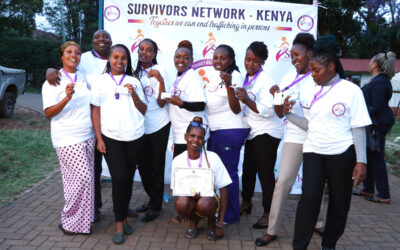Nepal’s labor minister is paving the way for safer, cheaper migration for workers – while protecting women from sexual exploitation and wage theft. Free the Slaves is one of many organizations advocating for strong measures to ensure that Nepalis who leave home to look for work aren’t trafficked into slavery instead.
Minister Deepak Bohora met with FTS Nepal Director Neelam Sharma and others last week to discuss his decision to maintain Nepal’s “Free Visa Free Ticket” policy. The initiative provides an opportunity for Nepalis seeking jobs in Bahrain, Qatar, Saudi Arabia, the United Arab Emirates, Oman, Kuwait and Malaysia to travel safely and with less expense.
Previously, migrant workers from Nepal pursuing employment in Gulf countries were required to pay up to $750 for their travels, fees to recruiting agencies, and various other expenses. This often forced migrant workers to take-out enormous loans to work abroad, leaving them in conditions of debt bondage slavery. Under the new system, workers pay $170 at most. These fees cover a medical check up, pre-departure training, orientation, and a migrant workers welfare fund. This reduction will lift much of the financial burden from migrant workers.
“The minister strongly said that he would stand for ‘Free Visa Free Ticket’ and not step back on his decision, albeit all the pressure from the [labor recruiting] agencies. He urged all of us to support him in this policy,” according to minutes of last week’s meeting.
Nepal is also developing a plan to protect women migrant workers, especially house maids, who are often not paid and are under constant risk of sexual abuse. This policy would require a minimum salary of $516, the worker whould be allowed to contact her family at least once a week, and women whould be allowed to return to Nepal after two years at the labor recruiting agency’s expense.
The meeting with Minister Bohora was a huge validation of our advocacy teamwork in Nepal. Our efforts to protect vulnerable workers is making an impact by changing the systems that allow slavery to continue in countries where migration to earn a living is common.
Learn more about our work in Nepal, and see videos featuring trafficking survivors who were enslaved while migrating for work, on our Nepal webpage.



